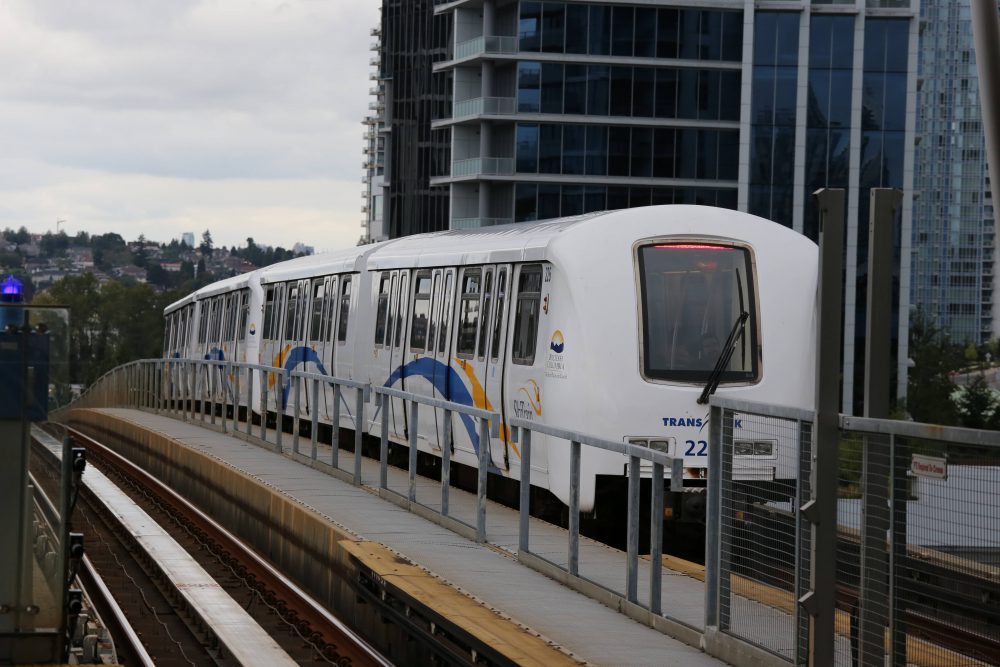The mayors of Metro Vancouver have gone ahead and approved a $2-billion, ten-year plan for transit improvements in the Lower Mainland, which will rely on local property tax increases and transit fare hikes in place of further provincial funding.

The plan, to be implemented as the first phase of the Mayors Council’s 10-Year Vision for Metro Vancouver Transit and Transportation, promises many new services and upgrades that are planned to begin January 2017, following a public consultation this October that will lead to a final council vote in November.
The improvements included in the first phase of the plan include 50 new SkyTrain cars, five new West Coast Express cars, and a new SeaBus. Five new B-Line express bus routes and increased SkyTrain service are also expected, along with continued planning and design work for the Broadway subway and Surrey light rail systems.
“We’re looking forward to hearing back from the public on the approaches to raising the funding locally, so that we can make sure that billions of dollars the federal government is putting on the table, and the initial investment from the province, are turning into immediate transit and transportation improvements,” said Vancouver Mayor Gregor Robertson.
To raise the remaining funds necessary for the project, Metro Vancouver mayors are proposing a $3-per-household property tax increase, as well as raising transit fares by at least two per cent per year over three years.
Mayor Robertson says these increases, which he insists are as small as the council could make them considering the costs involved, are the best way to ensure transit improvements can start to be implemented as soon as possible.
- Three B.C. men fined, banned from hunting after killing pregnant deer
- B.C. child-killer’s attempt to keep new identity secret draws widespread outrage
- Inquest hears B.C. hostage was lying on her captor before fatal shooting
- ‘We’ve had to make a 180’: What Oregonians say they got wrong with decriminalization
“I think people are sick and tired of the traffic and congestion, and crowded buses and SkyTrains,” he said. “We need to see action now, and that means drawing on every possible source, but being fair about it.”
The approval of the plan was not unanimous, however. Burnaby Mayor Derek Corrigan voted against the measure and opposed the decision to draw funds from property taxes, saying it was a short-term solution to “cobble together funds” in place of provincial dollars.
Corrigan instead suggested that either a vehicle levy or a carbon tax would be a better solution, but that the province refuses to look at any solution beyond one that draws from property taxes, which he says the mayors had previously ruled unanimously would never be used for transit funding.
The idea of using property taxes to help pay for transit projects had begun to be discussed earlier this year, as reported by Global News.
Corrigan further argues the $200 carbon tax rebate provided to homes throughout the province could be redirected to Metro Vancouver’s transit plan, which he says would result in creating “the best transit system in North America.”
“All of our problems would be solved,” he said.
The B.C. government pledged $246 million towards transit funding in Metro Vancouver back in May, providing 33 per cent of the necessary funding for the first phase of the project. Thursday’s announcement of a $1.9 billion budget surplus for the province did not include any plans for additional transit spending.
The federal Liberals have provided $370 million towards this first phase, and have also committed to providing 50 per cent of funding for all future infrastructure improvements, including the rest of the ten-year plan. This leaves Metro Vancouver with the remaining 17 per cent to raise.
NDP leader John Horgan promised Thursday that his government would commit to providing 40 per cent of funding for transit and major infrastructure projects, leaving Metro Vancouver with a 10 per cent funding responsibility. That plan is supported by Mayor Robertson, who says he has consistently called for a 50-40-10 plan between the three levels of government.
When asked on Thursday about the Mayors Council’s requests for further provincial funding, Minister for TransLink Peter Fassbender said the mayors needed to “suck it up” and find the funding themselves. It seems the region has done just that, provided the public consultation goes well.
Friday’s announcement marked the first major funding proposal for transit expansion from the region following last year’s failed public referendum that asked Metro Vancouver voters to approve a sales tax increase to help the city raise the necessary cash. The action was voted down by 62 per cent of voters.
The new plan is being sold as the best possible solution to what is quickly becoming a congestion nightmare for transit users.
“Our buses and our trains are getting overcrowded, and we need to address that,” said Kevin Desmond, CEO of TransLink, who pointed to record numbers of transit users in 2015, with those numbers expected to grow even further this year.



Comments